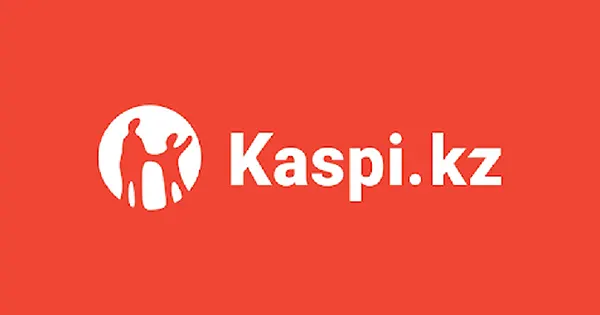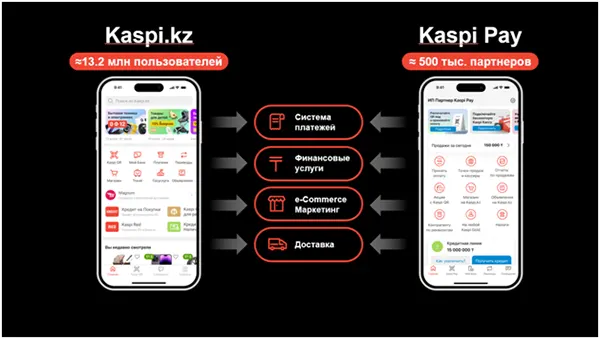
Kaspi.kz – a New Power in the Online Casino Industry
In early 2025, the Kazakhstani fintech giant Kaspi.kz made headlines by officially entering the global online casino space. Known primarily for its e-commerce and digital banking dominance in Central Asia, Kaspi.kz’s move into iGaming reflects a significant shift in its strategic focus. The company has not only acquired several smaller regional platforms but also launched its own regulated online casino brand with ambitions to scale across emerging markets. This article provides a detailed breakdown of how Kaspi.kz is reshaping the gambling landscape, the regulatory groundwork behind it, and how its innovation-first approach could challenge established industry leaders.
Kaspi.kz’s Expansion into iGaming: A Strategic Pivot
Kaspi.kz’s expansion into online gambling is not a spur-of-the-moment decision. In 2024, the company conducted extensive market research in Central Asia, Eastern Europe, and select African regions. They found a gap in financial technology integration and trust-building in existing online casinos. This discovery inspired their decision to create a fully licensed platform that merges secure digital banking with entertainment.
The brand’s new online casino — launched under the name KPlay — is registered in Curacao and is currently awaiting local licensing in Georgia and Kazakhstan. The company has built the infrastructure to ensure fast payments, low processing fees, and complete transparency. This aligns with their broader strategy of maintaining full control over the fintech stack while entering new digital verticals.
Kaspi.kz is also investing in localised experiences, hiring regional content creators, and offering player protection protocols beyond legal minimums. The platform integrates its casino environment with Kaspi’s financial app, allowing users to play responsibly and keep track of spending in real-time.
Technology and Payment Innovation
What makes Kaspi.kz unique is its ability to combine payment architecture with online casino functionality. Through a unified ecosystem, players can deposit and withdraw funds instantly without needing third-party processors. This integration is a key advantage in regions where payment friction often deters users.
Additionally, all transactions are backed by Kaspi Bank, a licensed financial institution. As a result, user balances are protected with the same security protocols used in traditional banking. The company has also implemented AI-driven fraud detection and biometric authentication for secure logins.
In February 2025, the platform introduced Pay-to-Play modules with flexible limits, allowing users to schedule and restrict sessions based on budget and time, reinforcing its responsible gambling stance. This system is the first of its kind in the region and has drawn positive attention from regulatory authorities.
Licensing, Regulation, and Market Compliance
Kaspi.kz’s entry into iGaming was made possible through strategic licensing moves. The company obtained a Curacao eGaming licence in October 2024, enabling it to operate in several international jurisdictions. It has since initiated applications in jurisdictions such as Georgia and the Philippines to ensure full compliance with local laws.
In Kazakhstan, however, legislation still prohibits online gambling operations by domestic companies. Kaspi.kz has responded by lobbying for a controlled legalisation framework, citing economic benefits and increased consumer protections. Negotiations with the government are ongoing, with the final legal resolution expected by mid-2025.
Their proactive compliance department is already working with regulators to implement AML (Anti-Money Laundering) and KYC (Know Your Customer) protocols that go beyond standard practice. This includes daily reporting, audit logs, and real-time monitoring to reduce manipulation risks and protect end users.
Responsible Gaming and Ethical Standards
The company’s ethical approach extends beyond regulation. KPlay uses AI to identify patterns of harmful behaviour, automatically suggesting cool-off periods or voluntary self-exclusion for affected users. They have also partnered with mental health NGOs in Georgia and Kazakhstan to offer discreet support services through the app.
Moreover, KPlay requires all its content providers to pass fairness audits, ensuring that the game algorithms meet provably fair standards. RNG certificates and RTP statistics are made public to enhance transparency and user trust.
This strong emphasis on responsibility has helped Kaspi.kz build an image not just of innovation, but also of integrity — a rare reputation for a newcomer in this space. They are actively working to align their operations with the principles of E-E-A-T (Experience, Expertise, Authoritativeness, Trustworthiness).

Global Ambitions and Local Impact
While KPlay is currently live in limited markets, Kaspi.kz’s ambitions go far beyond regional dominance. In February 2025, the company announced exploratory partnerships with software developers in Turkey, Uzbekistan, and Brazil. The plan is to tailor game catalogues to local preferences, including culturally relevant themes and language localisation.
Kaspi.kz has also started negotiating with tier-one game providers like Evolution, NetEnt, and Pragmatic Play to integrate their content. It aims to balance proprietary titles with globally recognised studios to ensure a high-quality and varied offering.
At the local level, Kaspi.kz has created over 400 jobs linked directly to its new gaming division. This includes roles in customer support, tech development, compliance, and content creation. They have also pledged a portion of revenues to fund digital education programmes in Kazakhstan and Georgia, supporting financial literacy and online safety.
The Future Outlook for Kaspi’s Casino Project
In summary, Kaspi.kz’s venture into online casinos is one of the boldest moves in the iGaming sector in recent years. Unlike many fintech firms that stick to traditional banking innovation, Kaspi.kz is actively reshaping entertainment through regulated, secure, and socially responsible channels.
If its regulatory efforts succeed in Kazakhstan and further expansion into Africa and Southeast Asia proves viable, Kaspi.kz could become a template for how fintech companies worldwide enter new verticals with care and strategy.
Industry analysts will be watching closely in 2025 to see whether KPlay can gain significant market share — not just in terms of users, but in setting new standards for ethical online gaming.
